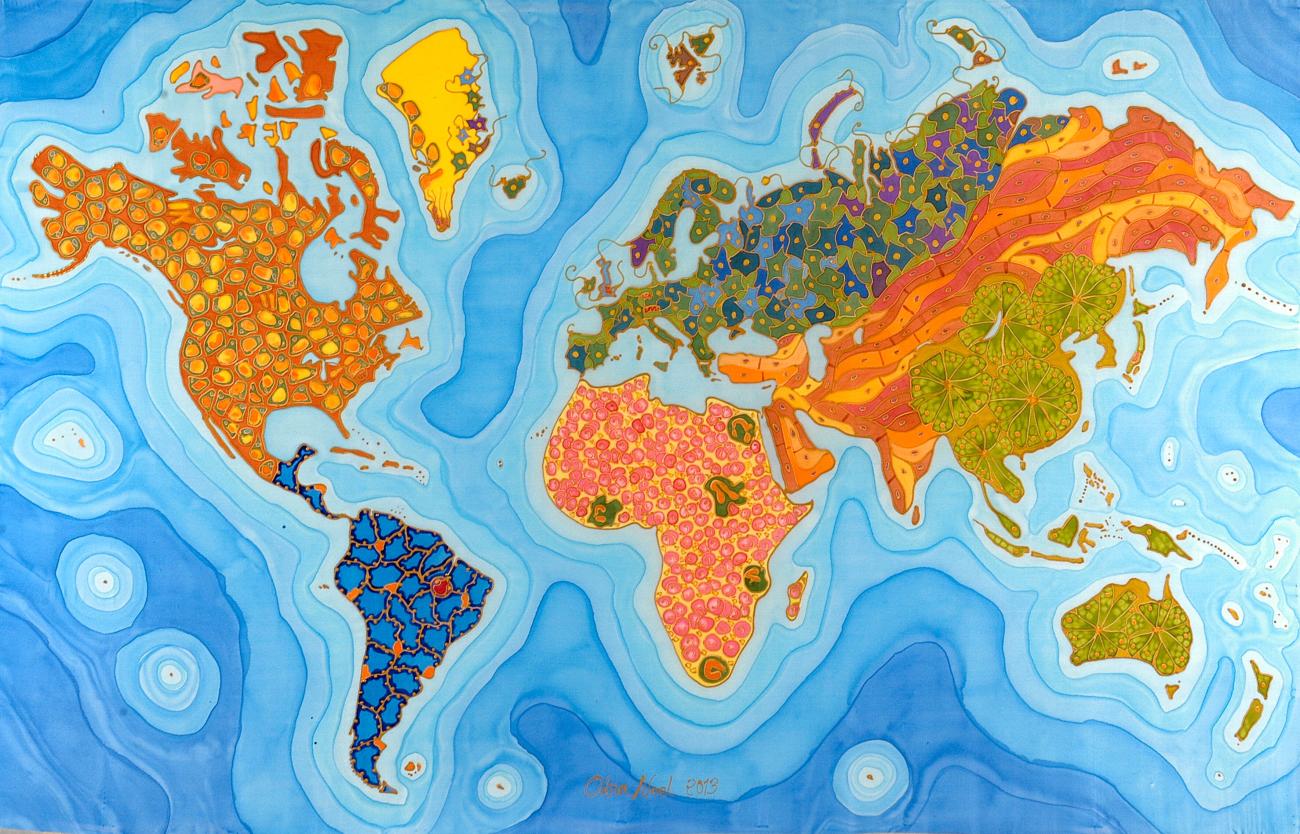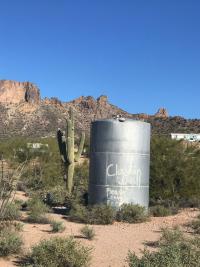
Center for Global Health
Water for All
The Center for Global Health is proud to partner with the Arizona Water Innovation Initiative (AWII) to advance the goal of Arizona Water for All. Funded by the Arizona Governor’s office, Water for All leverages what we know as social scientists to the massive and growing challenge of creating new solutions to water insecurity. This partnership brings us into direct collaboration with municipal, agricultural, nongovernmental, industrial, and international stakeholders to think in new ways, trial new solutions, and scale what works to ensure safe and fair water infrastructures in Arizona -- and beyond – in the century ahead.
Central to our Water for All mandate is focusing efforts and centering the perspectives of Arizona’s most water-insecure communities, those forced to manage the stresses and complexities of everyday living without safe, affordable, and adequate water service. Given these risks are greatly amplified in otherwise-marginalized groups, community partnerships are crucial. For example, our work along the U.S.- Mexico border, where many households have inadequate or no water service, has been co-developed with partners at the Rural Community Assistance Partnership (RCAP) and the Rural Community Assistance Corporation (RCAC).
Sometimes we think big, but we also see the benefits in thinking small. This is because locally-designed solutions – including off grid and social infrastructures -- are required to reach 100% coverage for water security in the state and beyond. We call this approach Mobile, Adaptive, Decentralized (MAD) Water. This effort benefits from close collaboration with the Household Water Insecurity Network.

Water for All currently has three teams on-the-ground defining, designing, testing, and implementing infrastructure projects with Arizona’s most water-insecure households and communities.
One team deploys participatory action research to ensure full integration of all planned activities with community goals, with community empowerment around water solutions as a core principle. Our second team is focused on working with engineers and water experts to improve on and scale proven water security solutions, including fit-to-purpose technologies like water filters and pumps. Our third team is evaluating what works best by advancing new tools that capture how people experience these solutions on-the-ground and can clarify what works best as scalable solutions. This effort includes designing and testing new simple scales for measuring improvements in water insecurity that can work across all of Arizona’s many different communities and varying local conditions.
One innovation that informs all three teams and their collaborative interaction is advancing new ways of thinking about and activating social infrastructure alongside innovations in MAD physical infrastructure. By social infrastructure we mean solutions that are based in relationships within local communities, such water sharing networks.
Currently we are expanding Water for All efforts across the state in collaboration with new community partnerships and engaging the additional expertise of social scientists at Northern Arizona University and University of Arizona. We welcome new community and academic partners in this important effort to bring Arizona’s water to everyone. To learn more about our team members, please visit the AW4A website. For general questions and opportunities to get involved contact the Water for All lead, Regents and President’s Professor Amber Wutich.
Medical Anthropology in Arizona
Medical Anthropology in Arizona is a scholarly network advancing medical anthropology across the state. The network encourages cutting-edge training, career support for graduates, sharing of best practices, and cross-institution collaborative research at all career stages.
Our inaugural meeting was a full day of presentations and conversations at the Native American Cultural Center at Northern Arizona University (NAU) in Flagstaff in August 2023.
Our next in-person event is planned for Friday, February 28th, 2025 in Phoenix at ASU, hosted by the Center for Global Health at Arizona State University (ASU).
Fill out this form to become a member and receive all updates and new information.